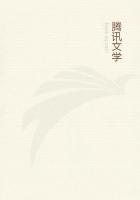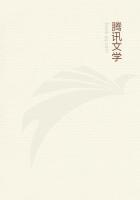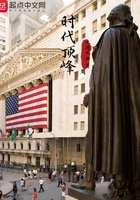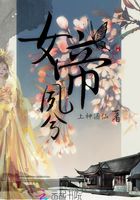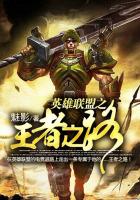Apology, as he understood himself, was cant or cowardice. At the time he never even dreamed that he needed to apologize, though the press shouted it at him from every corner, and though the Mount Vernon Street conclave agreed with the press; yet he could not plead ignorance, and even in the heat of the conflict, he never cared to defend the coalition. Boy as he was, he knew enough to know that something was wrong, but his only interest was the election. Day after day, the General Court balloted; and the boy haunted the gallery, following the roll-call, and wondered what Caleb Cushing meant by calling Mr. Sumner a "one-eyed abolitionist." Truly the difference in meaning with the phrase "one-ideaed abolitionist," which was Mr. Cushing's actual expression, is not very great, but neither the one nor the other seemed to describe Mr. Sumner to the boy, who never could have made the error of classing Garrison and Sumner together, or mistaking Caleb Cushing's relation to either. Temper ran high at that moment, while Sumner every day missed his election by only one or two votes. At last, April 24, 1851, standing among the silent crowd in the gallery, Henry heard the vote announced which gave Sumner the needed number. Slipping under the arms of the bystanders, he ran home as hard as he could, and burst into the dining-room where Mr. Sumner was seated at table with the family. He enjoyed the glory of telling Sumner that he was elected; it was probably the proudest moment in the life of either.
The next day, when the boy went to school, he noticed numbers of boys and men in the streets wearing black crepe on their arm. He knew few Free Soil boys in Boston; his acquaintances were what he called pro-slavery; so he thought proper to tie a bit of white silk ribbon round his own arm by way of showing that his friend Mr. Sumner was not wholly alone. This little piece of bravado passed unnoticed; no one even cuffed his ears; but in later life he was a little puzzled to decide which symbol was the more correct. No one then dreamed of four years' war, but every one dreamed of secession. The symbol for either might well be matter of doubt.
This triumph of the Mount Vernon Street conclave capped the political climax. The boy, like a million other American boys, was a politician, and what was worse, fit as yet to be nothing else. He should have been, like his grandfather, a protege of George Washington, a statesman designated by destiny, with nothing to do but look directly ahead, follow orders, and march. On the contrary, he was not even a Bostonian; he felt himself shut out of Boston as though he were an exile; he never thought of himself as a Bostonian; he never looked about him in Boston, as boys commonly do wherever they are, to select the street they like best, the house they want to live in, the profession they mean to practise. Always he felt himself somewhere else; perhaps in Washington with its social ease; perhaps in Europe; and he watched with vague unrest from the Quincy hills the smoke of the Cunard steamers stretching in a long line to the horizon, and disappearing every other Saturday or whatever the day might be, as though the steamers were offering to take him away, which was precisely what they were doing.
Had these ideas been unreasonable, influences enough were at hand to correct them; but the point of the whole story, when Henry Adams came to look back on it, seemed to be that the ideas were more than reasonable; they were the logical, necessary, mathematical result of conditions old as history and fixed as fate -- invariable sequence in man's experience.
The only idea which would have been quite unreasonable scarcely entered his mind. This was the thought of going westward and growing up with the country. That he was not in the least fitted for going West made no objection whatever, since he was much better fitted than most of the persons that went. The convincing reason for staying in the East was that he had there every advantage over the West. He could not go wrong. The West must inevitably pay an enormous tribute to Boston and New York. One's position in the East was the best in the world for every purpose that could offer an object for going westward. If ever in history men had been able to calculate on a certainty for a lifetime in advance, the citizens of the great Eastern seaports could do it in 1850 when their railway systems were already laid out. Neither to a politician nor to a business-man nor to any of the learned professions did the West promise any certain advantage, while it offered uncertainties in plenty.
At any other moment in human history, this education, including its political and literary bias, would have been not only good, but quite the best. Society had always welcomed and flattered men so endowed. Henry Adams had every reason to be well pleased with it, and not ill-pleased with himself.
He had all he wanted. He saw no reason for thinking that any one else had more. He finished with school, not very brilliantly, but without finding fault with the sum of his knowledge. Probably he knew more than his father, or his grandfather, or his great-grandfather had known at sixteen years old. Only on looking back, fifty years later, at his own figure in 1854, and pondering on the needs of the twentieth century, he wondered whether, on the whole the boy of 1854 stood nearer to the thought of 1904, or to that of the year 1. He found himself unable to give a sure answer. The calculation was clouded by the undetermined values of twentieth-century thought, but the story will show his reasons for thinking that, in essentials like religion, ethics, philosophy; in history, literature, art; in the concepts of all science, except perhaps mathematics, the American boy of 1854 stood nearer the year 1 than to the year 1900. The education he had received bore little relation to the education he needed. Speaking as an American of 1900, he had as yet no education at all. He knew not even where or how to begin.

